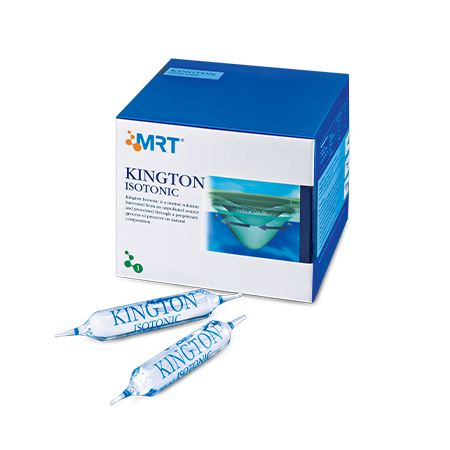Oxidative stress goes beyond ageing signs such as wrinkles and fine lines. A substantial body of scientific data demonstrates that long-term oxidative stress leads to the development of a variety of chronic diseases. Cancer, diabetes, and heart disease are examples of such diseases.
While we tend to look for external solutions that could cover up ageing signs, we should also look for internal avenues to support the skin and body with the right nutrients. Ultimately, it’s important that you take care of yourself inside and out in thoughtful and well-planned ways to minimise oxidative stress.
What is oxidative stress?
An imbalance of free radicals and antioxidants in the body causes oxidative stress, which can cause cell and tissue damage. Oxidative stress occurs naturally and contributes to the ageing process.
Temporary oxidative stress can be caused by the body’s normal immunological response. This form of oxidative stress generates moderate inflammation that resolves after the immune system fights off an infection or heals an injury.
Uncontrolled oxidative stress can hasten the ageing process and may lead to the development of a variety of diseases.1
When free radicals and oxidants are created in excess, they cause oxidative stress, a harmful process that may adversely disrupt cell membranes and other components such as proteins, lipids, lipoproteins, and deoxyribonucleic acid (DNA).2
Conditions linked to oxidative stress
Long-term oxidative stress causes cellular damage in the body. This can speed ageing and may have a role in the development of a variety of disorders.3 Oxidative stress has been linked to the development of a number of diseases, including:
- Cancer
- Alzheimer’s illness
- Parkinson’s disease
- Diabetes
- High blood pressure, atherosclerosis, and stroke are all examples of cardiovascular diseases.
- Inflammatory conditions
- Syndrome of chronic tiredness
- Asthma
- Infertility in men
Managing and preventing oxidative stress
1. Take antioxidants
It is hard to prevent free radicals and oxidative stress entirely. There are, however, things you can take to reduce the impact of oxidative stress on your body. The biggest thing you can do is enhance your antioxidant levels and lower your free radical generation.
One way to reduce oxidative stress is to make sure you’re getting enough antioxidants in your diet. Eating five servings of fruits and vegetables every day is the greatest approach to give your body what it needs to create antioxidants.4
You can get antioxidants from citrus fruits as they are rich in vitamin C, as well as berries, dark leafy greens, tomatoes and olives, among others.
In maintaining a healthy diet, it is also important that you avoid overeating and reduce alcohol intake.
2. Use sunscreen
Sunscreen prevents ultraviolet light (UV) damage to your skin – wrinkles, liver spots, and cancers. Research has also shown it is effective in preventing oxidative stress.5
There are two categories of UV light, UVA and UVB.
UVA radiation penetrates deeper into the skin than UVB light, damaging collagen, a structural protein. Our skin loses suppleness and smoothness when collagen degrades, resulting in wrinkles. UVA radiation is responsible for many obvious indications of ageing, whereas UVB light is the major cause of sunburn.6
3. Be environmentally conscious
Carpooling and other environmentally friendly actions can help you and your community minimise free radical production.7
How is this possible? Free radicals can also be exposed to you from the environment. Sources include ozone, pesticides, certain cleaners, cigarette smoke, radiation, and pollution.
Hence, being mindful about the chemicals in your products as well as taking other initiatives such as carpooling and giving up smoking can have an impact on everybody’s health.
4. Take supplements
Not all of our nutrients can be acquired by diet, hence supplements can help. After all, limiting oxidative stress should be from the inside out.
Supplements like spirulina, vitamin C and fish oil, among others, can help to improve your health. And another supplement you can take to improve overall cellular health can come from an unpolluted part of the ocean – where bioavailable elements can help replenish your body’s minerals.
Kington Isotonic by Elken is a marine solution harvested from an Exclusive Plankton Bloom Vortex formation in an unpolluted part of the ocean. It delivers life-enriching seawater nutrients to the body for overall improved health and well-being. Containing 78 types of bioavailable elements, it restores the mineral balance in our internal terrain and helps to improve overall cellular health by
promoting normal cell replication and renewal.
To learn more about Kington Isotonic, please go to https://www.elken.com/health-wellness/kington-isotonic/

Sources:
1 https://www.medicalnewstoday.com/articles/324863#what-is-it
2 https://www.ncbi.nlm.nih.gov/pmc/articles/PMC3614697/
3 https://www.medicalnewstoday.com/articles/324863#conditions
4 https://www.healthline.com/health/oxidative-stress#prevention
6 https://www.scientificamerican.com/article/how-do-the-chemicals-in-sunscreen-protect-our-skin-from-damage/ 7 https://www.healthline.com/health/oxidative-stress#prevention

